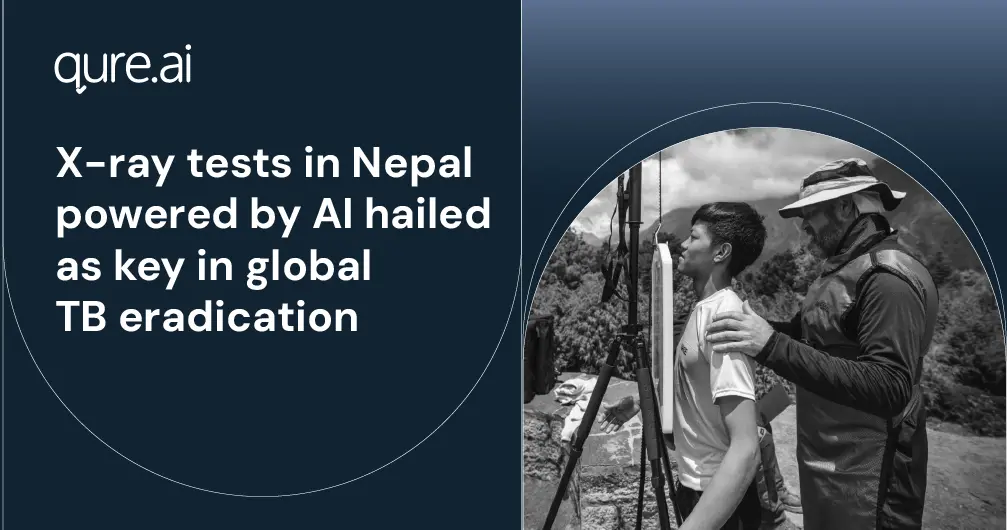A recent expedition to the Everest Base Camp (EBC) in Nepal has showcased the transformative potential of portable X-ray machines equipped with an AI-powered screening solution developed by Qure.ai in the fight against tuberculosis (TB).

Back
At an altitude of 5,500 meters at Kala Patthar, the group successfully used this advanced technology to conduct TB screenings in one of the most remote and challenging environments on Earth. The solution, developed by Qure.ai, enables rapid analysis of X-ray images, providing results in seconds and mitigates the dependency on radiologists—a crucial factor in regions with scarce medical resources.
This technological breakthrough is particularly significant for developing countries like Nepal, where TB remains a leading cause of death and where access to healthcare is severely limited. In many rural areas, the nearest medical facility equipped to perform X-ray screenings can be hours away, and the shortage of radiologists further hampers timely diagnosis. Qure.ai's AI software addresses this gap by making TB screening more accessible and efficient, even in the most isolated communities.
The expedition's success underlines the viability of using such AI-powered screening solutions along with portable X-ray machines to tackle TB in regions with limited healthcare infrastructure. Qure.ai’s World Health Organization (WHO)-evaluated AI technology, already commercially viable, is viewed as a key tool in global efforts to eradicate TB, which disproportionately affects marginalized populations. By enabling early detection and treatment, these AI-powered screenings can play a crucial role in reducing the spread of TB.
Despite its promise, the widespread adoption of this technology faces challenges, including the need for careful implementation and oversight to ensure safety and effectiveness. The WHO has endorsed the potential of AI in healthcare, emphasizing the importance of standardized guidelines and regulations to maximize its impact. As this technology is scaled up, it offers a promising avenue for improving health outcomes in some of the world's most underserved regions.